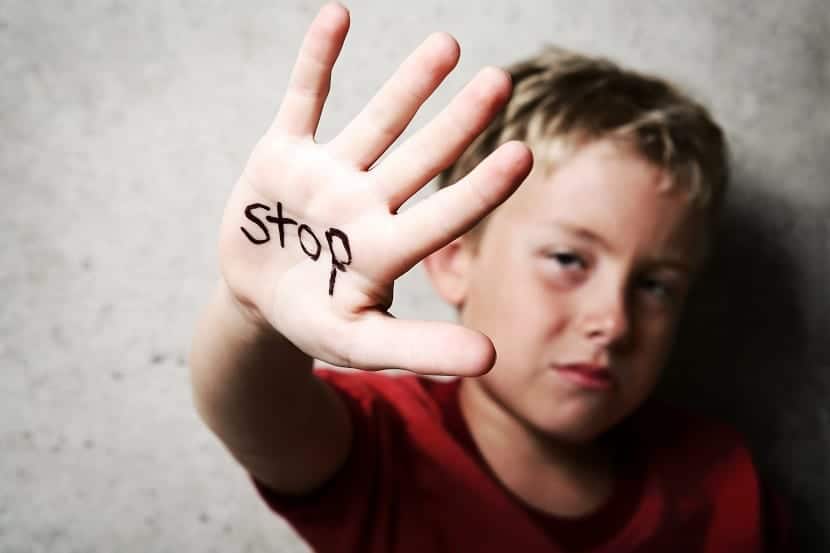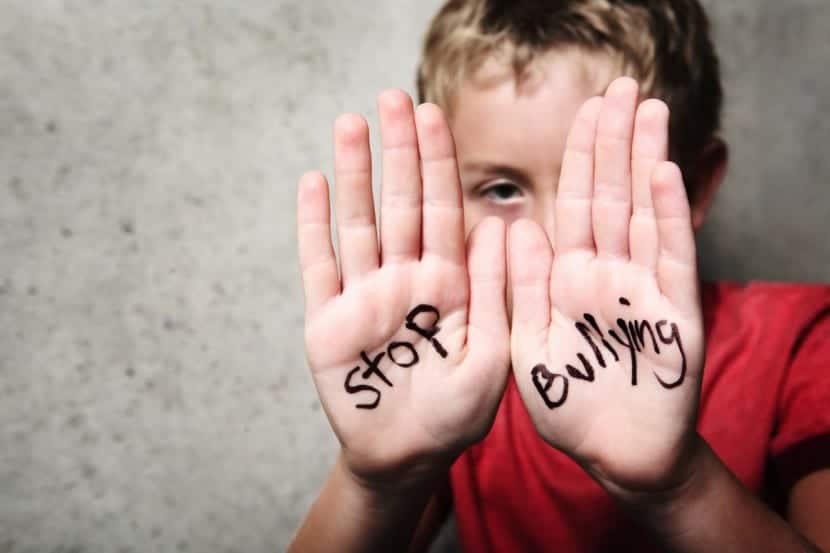
Bullying or bullying is a very serious issue and in no case is it a 'children's issue' as many think to justify the bad behavior of some boys when they bully others. These negative and unacceptable behaviors in many cases are learned in the child's closest environment, such as at home. If you are a parent concerned about intimidation or bullying, you need to learn to recognize the signs that a child is a bully, but also the signs that reveal that a child is being bullied.
When children have some kind of difference, a learning deficit or a disorder that makes a difference from others, it is possible that your child may be more vulnerable to bullying or bullying if he does not have enough tools to cope or if you don't have a good self-esteem. It is for all these that parents should be alert and observe possible changes in their children's behaviors.
Many victims do not inform their parents or teachers that they are being bullied, that make them feel ashamed, that they laugh at them, that they humiliate them and even that they physically and verbally attack them. They may think that adults will not help them and they may even think that if they talk about it with someone that the abuse of the aggressor will be it will become even more unbearable and that no one can do anything to remedy it. On the other hand, bullies are not going to tell about their bad behavior and if they are discovered, it is normal for them to deny it.

Signs that your child is a victim
There are some symptoms and behaviors at home that indicate that your child it's being intimacyoy that you are experiencing bullying:
- Comes from school with torn or messy clothes
- Has broken or damaged school supplies
- Has bruises, bumps or scratches and is unable to give you a logical explanation of how they were done
- Does not want to go to school
- He is afraid
- You get headaches and stomachaches regularly, especially when you have to go to school
- Choose alternative routes to go to school
- Wants to be alone and isolates himself socially
- Has nightmares or cries in dreams
- Loses interest in school work and begins to have poor grades and poor academic performance
- Seems sad or depressed
- Has mood swings and feels irritable
- He asks for money that you don't know where he is spending it, it is possible that the stalker is pressuring him to give him money
- He comes home from school hungry because the bully has taken his lunch
Signs that your child is a bully
A child who is bullying others may display one of these behaviors at home:
- Has aggressive and tyrannical behavior
- Has little empathy for the feelings of others
- Has a great need to dominate and subdue others
- Use threats and aggressiveness to get what you want
- Intimidates siblings or other children
- Flaunts real or imagined superiority over other children
- Gets angry easily and is often angry if he does not get what he wants
- Is impulsive
- Has a low tolerance for frustration
- Does not want to accept the established rules
- Say lies
- Has aggressive and defiant oppositional behavior towards adults, including teachers and parents.
- Has antisocial or criminal behavior (vandalism or theft) at an early age
- You usually date people who are not good references

What can the victim's parents do
If you suspect that your child is being bullied but the school has not told you, you should follow some tips to put an immediate end to this situation:
- Go immediately to speak with the teacher at a time when you do not cross paths with the students at school. You need to get the cooperation of the school to get the bullying to stop.
- Be understanding with your child and take the problem seriously, don't overreact or overreact.
- Don't blame your son. It needs your unconditional support and understanding.
- Seek professional help if you think your child needs it, it is important that they feel emotionally secure.
- Maintain good communication with your child, spend more time with him, provide constant support and tell him daily how important he is to you and how much you love him.
- Teach child safety strategies without aggression or violence.
- Work on your child's self-esteem and help him put the problem in perspective and not take it personally.
- Encourage your child to make new friends in safe environments.
If the bullying occurs at school you should go to the center to remedy the situation and develop an action plan. You should write down the details of the bullying and discuss it with the school principal, try to see the situation objectively and determine the seriousness of the matter. You must make your child see that in situations of school aggression adults should intervene to solve the problem, so you will need to know exactly who you are talking to. Talk to the teacher first, then with the principal if you see that there is no solution and if there is no educational response, then you should contact a lawyer to take legal action against the school. Going directly to the aggressor's family is not a solution.

The most important thing is that the child who suffers from bullying feel supported and supported at all times, you must feel the security in your person. If all else fails and the child continues to suffer in school, the last resort of changing schools should be considered so that they have the opportunity to start from scratch. Before the change of school, it is necessary for the child to go to a psychology professional so that he can work on social skills, self-esteem and personal safety.